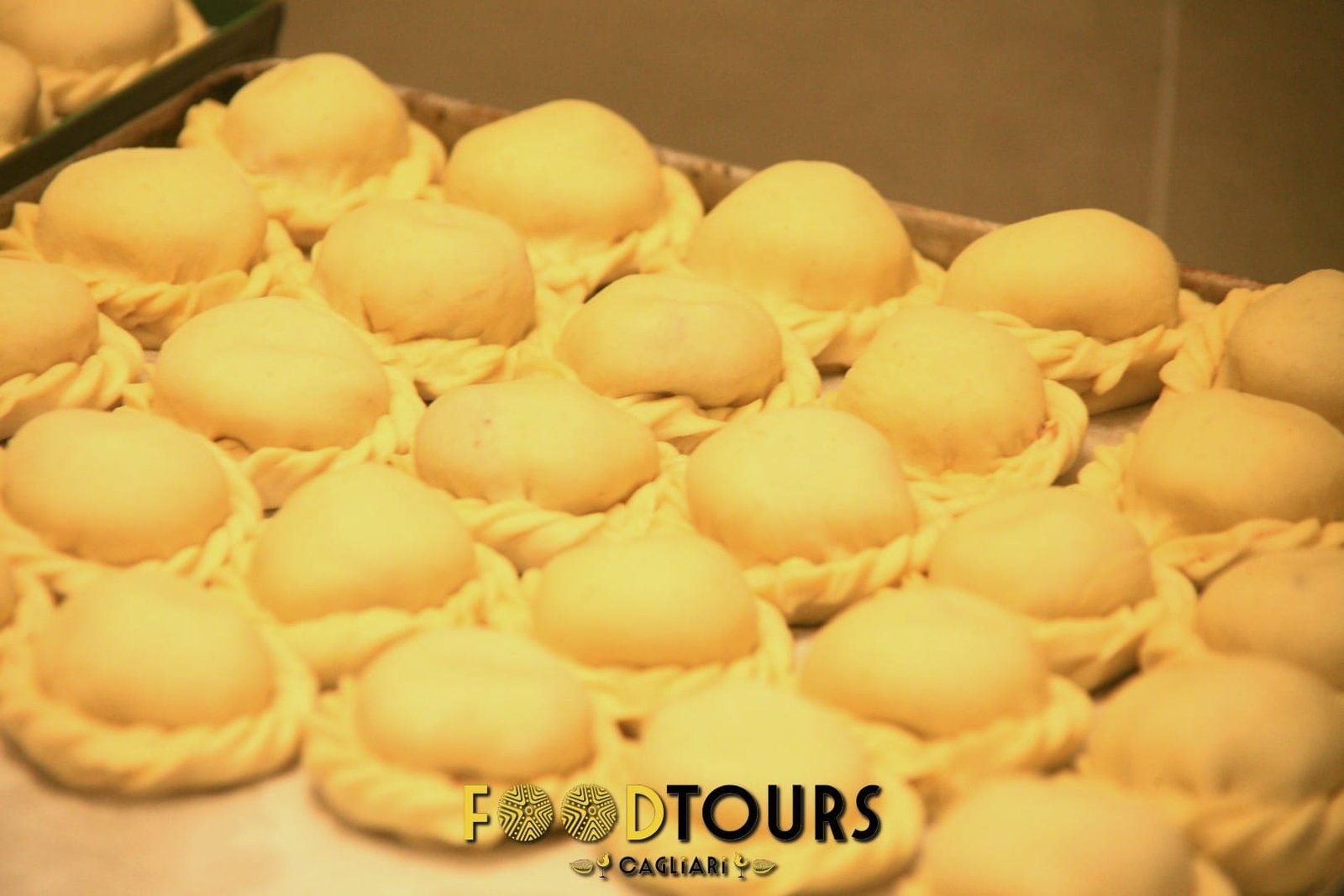Panada, a symbol of tradition and taste, is a Sardinian savory pie loved for its crispiness and versatility. Its origin is disputed among the municipalities of Oschiri, Assemini, Pattada, and Berchidda. Over the centuries, this delicacy has conquered the entire island, giving rise to countless variations that reflect local traditions. The preparation of panada is an art that skillfully blends simplicity and taste: the dough, although reminiscent of shortcrust pastry, is distinguished by the use of semolina flour and lard, which give it a more compact and crispy texture.
Traditionally, the filling of panada is made with pork, lard, and aromatic herbs such as parsley and garlic, but there are numerous variations. Some, for example, are prepared with lamb or veal, while others may contain fish, particularly eel, in the Campidano variant. Still others can be vegetarian, enriched with ingredients such as artichokes, peas, or broad beans. A distinctive element of all panadas is the characteristic closure of the dough, which forms a decorative crown, obtained by pinching the dough to seal it.
Panada is a dish that represents a true culinary tradition, not only in Sardinia but also in other Mediterranean islands such as Mallorca, where a similar preparation is known as panada. The affinities between the two versions are undeniable, although they differ in some ingredients such as the absence of lard in the Mallorcan panada and the use of paprika, typical of Balearic cuisine. This dish, with its ancient and rustic flavor, has deep roots dating back to remote eras, such as the Sardinian Nuragic civilization and the megalithic culture of the Balearic Islands.
Panada can be considered a complete meal, served as a single dish in the typical Logudoro variants, or as a second course in those of Campidano, more abundant and rich in ingredients. Traditionally, it is prepared for festivities or celebrations, and its preparation often becomes a moment of family and community gathering. A smaller and more practical variant is the panadina, ideal for a quick snack. This is often fried rather than baked and has a crispier texture and a more decisive taste.
In 2016, the panada of Assemini with eels was recognized as a Traditional Agri-food Product (PAT) of Sardinia, a milestone that testifies to the importance of this dish in local and regional gastronomic culture. Regarding the history of panada, there are various hypotheses. Some scholars suggest that the dish could date back to the Sardinian Nuragic and Talaiotic era, while other theories trace the origin of panada to Jewish influences, particularly in the context of Sephardic communities. According to this interpretation, the panada would have undergone changes over time, with the addition of pork and spices to conform to the canons of Christian cuisine, after the expulsion of Jews from Spain in 1492.
In any case, panada has become one of the most representative dishes of Sardinia, a symbol of a deep connection with the land and the island’s culinary tradition. Its preparation, which requires patience and skill, is often passed down from generation to generation, combining gastronomic culture with the history and festivities of the territory. Today, panada is a dish celebrated not only in small Sardinian towns but also in cities, where it is prepared for special events, family occasions, and in excellent bakeries that offer it as original street food.
For those who wish to explore traditional Sardinian cuisine, panada represents an authentic gastronomic experience that offers a taste of the island’s history and culinary traditions. Every bite tells the story of centuries of influences, cultural exchanges, and innovations, making this dish a symbol of Sardinian identity. Traveling through the different municipalities of the island, it will be possible to discover the numerous variations of panada, each with its unique recipe, but all united by the passion for the genuine and authentic flavors of Sardinia.
Come and taste one of our favorite panadinas (small panada) during our Market food tour!






